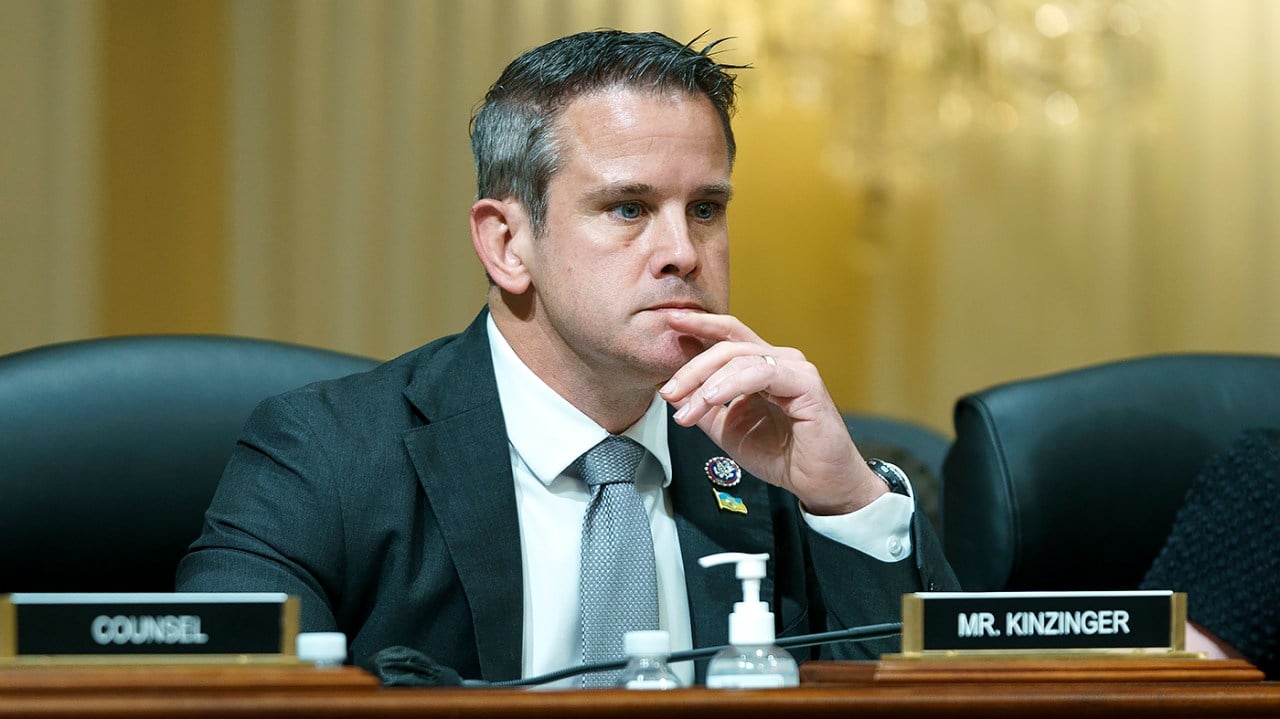Former Rep. Adam Kinzinger (R-Ill.) bashed former President Trump online and said Christians who support him “don’t understand” their religion.
“I’m going to go out on a NOT limb here: this man is not a Christian,” Kinzinger said on X, formerly known as Twitter, responding to Trump’s Christmas post. “If you are a Christian who supports him you don’t understand your own religion.”
Kinzinger, one of Trump’s fiercest critics in the GOP, said in his post that “Trump is weak, meager, smelly, victim-ey, belly-achey, but he ain’t a Christian and he’s not ‘God’s man.’”



No, he used the word difficult.
From what I understand, the wisdom at the time was that money was an indicator of favor from God, and Jesus went against that. However, I don’t think he meant that money was the issue, but merely a symptom of interests not aligned with God’s. Many wealthy people care more about their wealth and fame than God or those around them.
If you just said “Augustus,” people would think of Octavian, not the current emperor, so “Caesar Augustus” would’ve been used to uniquely refer to the emperor. After Tiberius, emperors typically had both titles, and the heir apparent just had “a Caesar,” so it acted as a dynastic name, even if the heir wasn’t a blood relation (e.g. Tiberius himself was adopted). So both the emperor and heir held the title “Caesar” and only the emperor also held the title “Augustus.”
It seems odd for Jesus to be referring to the heir apparent here, he would be referring to the emperor. To add to it, Julius Caesar was deified, so “Caesar” here likely has a double meaning to show the difference between a self-proclaimed god and the true God. He’s not saying you should pay taxes to benefit others, he’s saying you should pay taxes because that’s your legal obligation.
And yes, “Caesar” was symbolic, but I’d assume most would refer to the government as “Rome,” not “Caesar.”
Initially. Then he realized he needed to be more blunt. So he gave a metaphor making it clear it was almost impossible, and even bluntly said “with man this is impossible”. The reaction of the disciples also prove it had nothing at all to do with any “gate”.
23Then Jesus said to his disciples, “Truly I tell you, it is hard for someone who is rich to enter the kingdom of heaven.
24Again I tell you, it is easier for a camel to go through the eye of a needle than for someone who is rich to enter the kingdom of God.”
25When the disciples heard this, they were greatly astonished and asked, “Who then can be saved?”
26Jesus looked at them and said, “With man this is impossible, but with God all things are possible.”
They were astonished because, at the time, wealth was considered to be a sign of favor from God. Jesus’ statements at the time went directly against that, and that’s what surprised them. There was similar surprise at his statements that the meek and humble would inherit the earth and go to heaven.
The scandal wasn’t that rich people in general probably wouldn’t go to heaven, but that seemingly righteous people wouldn’t go to heaven.
I think he’s referring to salvation generally here. Man cannot save himself, so no amount of wealth will be helpful. God can save man, and he is the one that makes it possible.
So whether it’s a gate or a literal needle isn’t really relevant, God controls who gets to heaven, and God’s expectations are at odds with people who love money. The message here is that wealth doesn’t indicate favor with God and it cannot save you, so you should focus on what can save you. You can have wealth and those attributes, but wealth attracts selfish people, and those selfish attributes will prevent you from entering heaven.